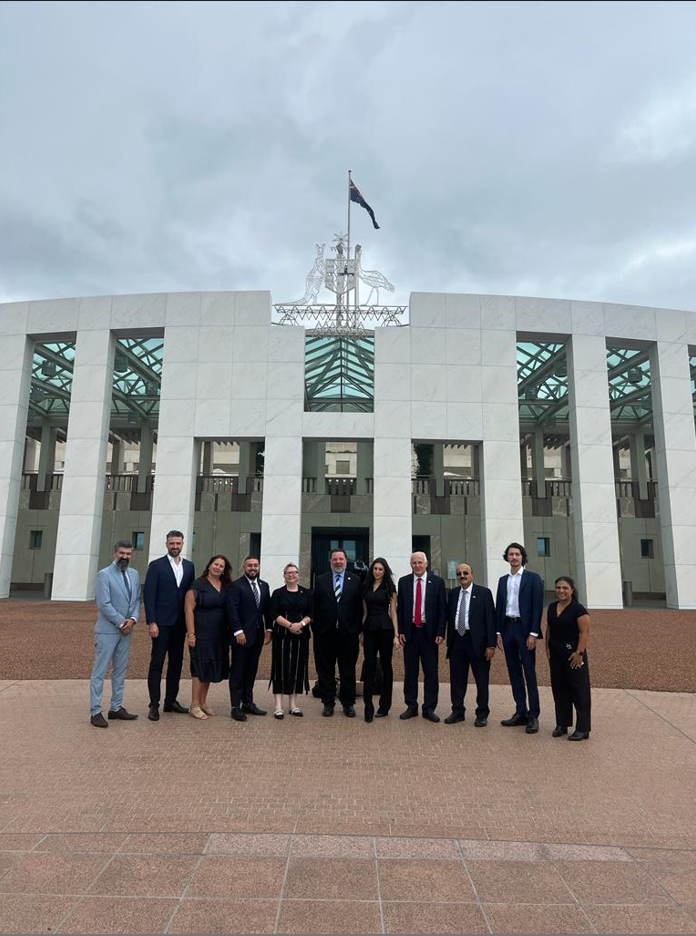Associate Professor Dr Melanie O’Brien, President of the International Association of Genocide Scholars (IAGS), visiting from the University of Western Australia in Perth, participated in the inaugural Joint Justice Initiative Advocacy Week at Federal Parliament, Canberra.
An Associate Professor of International Law at the UWA Law School, Dr O’Brien also leads the foremost global historical authority on genocide studies.
The Joint Justice Initiative (JJI) Advocacy Week seeks to build momentum for Australian parliamentary recognition of the Armenian, Assyrian and Greek genocides ahead of the annual commemorations of the three genocides.
Dr O’Brien’s presence provided parliamentarians with ground-breaking insights from her recent book From Discrimination to Death: Genocide Process Through a Human Rights Lens, which heavily focuses on the Armenian Genocide.
Dr O’Brien has worked closely with Australian Armenian, Assyrian and Greek community organisations for some time, having keynoted the 2018 National Commemoration of the Armenian Genocide, as well as other commemorative events, including the commemoration for the centenary of the Holocaust of Smyrna in Sydney in September 2022.
“We are delighted Dr O’Brien will be our inaugural guest for the JJI Advocacy Week this year,” Armenian National Committee of Australia (ANC-AU) Executive Director, Michael Kolokossian, said.

“Australian parliamentarians will benefit from her wealth of experience and knowledge on the genocides, being one of the foremost scholars on this issue. We are proud to have an Australian in this space and believe Dr O’Brien will assist us greatly on our advocacy journey.”
Dr O’Brien said: “Being part of this Joint Justice Initiative delegation is an important way that I can represent the International Association of Genocide Scholars. Our members conduct scholarly work with the goal of preventing and punishing genocide, and aim for our work to influence policy and lawmakers.”
“It is crucial that Australia recognise the genocide of the indigenous Armenian, Assyrian and Greek populations of the Ottoman Empire by the Ottoman and Republican governments, to acknowledge the reality of the crimes committed against the victims, survivors and their descendants – some of whom are Australian citizens – and to contribute to the prevention of future genocides,” Dr O’Brien added.
President of the Federation of Pontian Associations of Australia, Peter Stefanidis, stated that a key factor in the success of JJI’s Advocacy Week was the active involvement of youth leaders from the three communities.
“Combining our resources of the key issue of genocide recognition continues to expand as the Australian Hellenic, Australian Armenian and Australian Assyrian communities also develop together the leadership skills of the next generation,” Mr Stefanidis said.
The inaugural JJI Advocacy Week was conducted during one of the last sitting weeks before Armenian Australians commemorate the 108th Anniversary of the Armenian Genocide as Azerbaijan’s blockade of the Republic of Artsakh approaches its 100th day.
Formed in March 2020, the Joint Justice Initiative is the joint advocacy effort of the three communities towards achieving parliamentary recognition of the genocides of the Armenians, Assyrians and Hellenes from Federal as well as all state and territory parliaments.

